******************************Keynote Academic Speakers*******************************
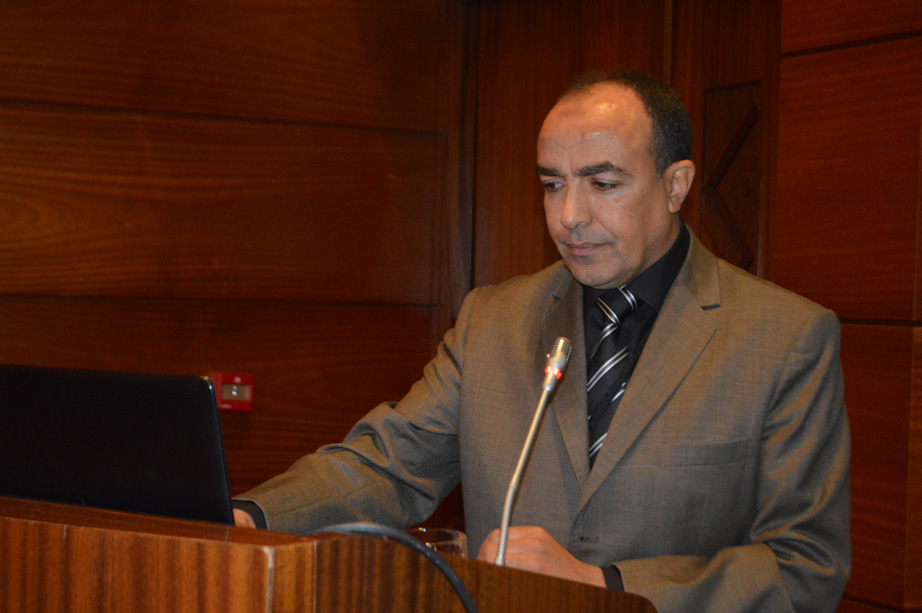 Professor Azzeddine Mazroui, Faculty of Sciences, Mohammed First University, Oujda Morocco
Professor Azzeddine Mazroui, Faculty of Sciences, Mohammed First University, Oujda Morocco
Title: Text disambiguation using machine learning and deep learning approaches
Abstract: Ambiguity is one of the main challenges facing Natural Language Processing (NLP). Indeed, the limitations of NLP applications, such as machine translation, search engines and sentiment analysis, are largely a consequence of this phenomenon. Thus, the development of efficient tools for eliminating ambiguity is one of the main areas of NLP research. A word is morphologically ambiguous if it can be associated with various proclitic+stem+enclitic segmentations, and it is syntactically ambiguous when it can accept several syntactic functions. Semantic ambiguity corresponds to the diversity of meanings of certain words. The phenomenon of ambiguity is amplified in the case of the Arabic language that is known for its morphological richness. We begin this conference by recalling the leading causes behind the ambiguity phenomenon in the Arabic language, and the different machine learning approaches used to eliminate ambiguity at the morphosyntactic level. We end the conference by presenting some applications based on these disambiguation tools.
-------------------------------------------------------------------------------------------------------------------------------------------------------------------------------------------
 Professor ASIMI Ahmed is a full professor at the Faculty of Science, Agadir, Morocco. He received his Ph.D degree in Number theory from Department of Mathematics, Faculty of Science, University Mohammed V, Agdal in 2001, Morocco. He is reviewer at the International Journal of Network Security (IJNS). His main areas of research interests include Number theory, Code theory, Computer Cryptology, Computer and Network Security.
Professor ASIMI Ahmed is a full professor at the Faculty of Science, Agadir, Morocco. He received his Ph.D degree in Number theory from Department of Mathematics, Faculty of Science, University Mohammed V, Agdal in 2001, Morocco. He is reviewer at the International Journal of Network Security (IJNS). His main areas of research interests include Number theory, Code theory, Computer Cryptology, Computer and Network Security.
Title: Cloud Architecture of Soft Skills based on Deep Learning
Abstract: Nowadays, Soft skills remain a very important area for the development and the construction of society which represents a fundamental challenge for universities. They mainly aim to become an organization capable of providing human capital for the development of countries either at the level of research or creation, especially in the field of industry. In this sense, universities should have academic, relevant, adequate, practical and appropriate programs which facilitate students' access to the world of work which requires a high level of soft skills; namely, critical thinking, problem solving, leadership, professionalism / work ethic, teamwork / collaboration and adaptability / flexibility.
Our objective in this conference is to provide a supervised, iterative and intra-recursive architecture in terms of learning loops, and multi-hybrid in terms of deployment. Its aim is to complete the spirit of self-training of the learner based on beneficial analysis and detection, improvement and development of its technical and non-technical skills, regardless of physical constraints (handicap or different learning styles), called Soft Skills Cloud Architecture based on Deep Learning "ACSS". It is defined by sex main phases. 1) Initialing phase, 2) Planning or creation phase of a reference basis which makes it possible to define the most important skills demanded in the job market, 3) Skills detection phase, 4) Skills classification phase, 5) Decision phase and 6) Implementation phase. In addition, our diagram presents a supervised orientation process in which the learner can, in each phase, consult the different means and methods of improvement, thus, it offers the advantage of self-evolution.
-----------------------------------------------------------------------------------------------------------------------------------------------------------------------------------------
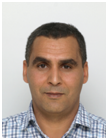 Professor Mohamed BAKHOUYA is a professor of computer science at the International University of Rabat. He obtained his HDR from UHA-France in 2013 and his PhD from UTBM-France in 2005. He has more than ten years experiences in participating and working in sponsored ICT projects. He was EiC of IJARAS journal and also serves as a guest editor of a number of international journals, e.g.,ACM Trans. on Autonomous and Adaptive Systems, Product Development Journal, Concurrency and Computation: Practice and Experience, FGCS, and MICRO. He has published several papers in international journals, books, and conferences. His research interests include various aspects related to the design, validation, and implementation of distributed and adaptive systems, architectures, and protocols.
Professor Mohamed BAKHOUYA is a professor of computer science at the International University of Rabat. He obtained his HDR from UHA-France in 2013 and his PhD from UTBM-France in 2005. He has more than ten years experiences in participating and working in sponsored ICT projects. He was EiC of IJARAS journal and also serves as a guest editor of a number of international journals, e.g.,ACM Trans. on Autonomous and Adaptive Systems, Product Development Journal, Concurrency and Computation: Practice and Experience, FGCS, and MICRO. He has published several papers in international journals, books, and conferences. His research interests include various aspects related to the design, validation, and implementation of distributed and adaptive systems, architectures, and protocols.
Title: IoT, Big Data Technologies and Predictive Approaches for the Development of Context-driven Applications
Abstract: Recent advances in pervasive technologies, such as wireless ad hoc networks and wearable sensor devices, allow the connection of everyday things to the Internet, commonly denoted as Internet of Things (IoT). IoT is seen as an enabler to the development of intelligent and context-aware services and applications. These services could dynamically react to the environment changes and users’ preferences. The main aim is to make users’ life more comfortable according to their locations, current requirements, and on-going activities. However, handling dynamic and frequent context changes is a difficult task without a real-time event/data acquisition and processing platform. Big data, WSN, and IoT technologies have been recently proposed for timely gathering and analysing information (i.e., data, events) streams. In this talk, we shed more light on the potential of these technologies for continuous and real-time data monitoring and processing in different real-case applications (e.g, Healthcare, energy efficient building, smart grid).
----------------------------------------------------------------------------------------------------------------------------------------------------------------------------------------
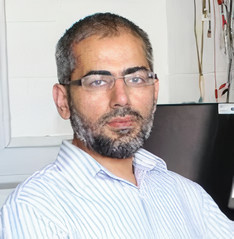 Professor Amir Hussain is Professor and founding Director of the Centre of AI and Robotics at Edinburgh Napier University, UK. His research interests are cross-disciplinary and industry-led, aimed at developing cognitive data science and trustworthy AI technologies to engineer smart healthcare and industrial systems of tomorrow. He has (co)authored around 600 research publications, including over 250 journal papers and 20 Books/monographs. He has supervised over 40 PhD students and led major national and international projects. He is currently managing research grants totalling over £5 Million, including as Lead Principal Investigator for the COG-MHEAR Programme Grant (funded under the UK EPSRC Transformative Healthcare Technologies 2050 Call) that aims to develop truly personalised, multi-modal hearing assistive technology. He is also leading a related UK EPSRC project that is developing privacy-preserving and emotion-sensitive conversational agents for natural language dialogue in low-resource domains. He is founding Chief Editor of Springer’s Cognitive Computation journal (Impact factor: 5.4) and invited editorial board member for Elsevier’s Information Fusion and several IEEE Transactions including on: Neural Networks and Learning Systems; Artificial Intelligence; Systems, Man and Cybernetics (Systems); and Emerging Topics in Computational Intelligence. He has served as General Chair of IEEE WCCI 2020 (the world’s largest IEEE CIS technical event on computational intelligence, comprising the IJCNN, FUZZ-IEEE and IEEE CEC) and is currently General Chair of the 2023 IEEE Smart World Congress. He is an Executive Committee member of the UKCRC (the national expert panel of the IET and the BCS for UK computing research) and Chapter Chair of the IEEE UK and Ireland Industry Applications Society.
Professor Amir Hussain is Professor and founding Director of the Centre of AI and Robotics at Edinburgh Napier University, UK. His research interests are cross-disciplinary and industry-led, aimed at developing cognitive data science and trustworthy AI technologies to engineer smart healthcare and industrial systems of tomorrow. He has (co)authored around 600 research publications, including over 250 journal papers and 20 Books/monographs. He has supervised over 40 PhD students and led major national and international projects. He is currently managing research grants totalling over £5 Million, including as Lead Principal Investigator for the COG-MHEAR Programme Grant (funded under the UK EPSRC Transformative Healthcare Technologies 2050 Call) that aims to develop truly personalised, multi-modal hearing assistive technology. He is also leading a related UK EPSRC project that is developing privacy-preserving and emotion-sensitive conversational agents for natural language dialogue in low-resource domains. He is founding Chief Editor of Springer’s Cognitive Computation journal (Impact factor: 5.4) and invited editorial board member for Elsevier’s Information Fusion and several IEEE Transactions including on: Neural Networks and Learning Systems; Artificial Intelligence; Systems, Man and Cybernetics (Systems); and Emerging Topics in Computational Intelligence. He has served as General Chair of IEEE WCCI 2020 (the world’s largest IEEE CIS technical event on computational intelligence, comprising the IJCNN, FUZZ-IEEE and IEEE CEC) and is currently General Chair of the 2023 IEEE Smart World Congress. He is an Executive Committee member of the UKCRC (the national expert panel of the IET and the BCS for UK computing research) and Chapter Chair of the IEEE UK and Ireland Industry Applications Society.
Title: Towards trustworthy Artificial Intelligence enabled assistive healthcare technologies
Abstract: Pioneering multi-disciplinary research at Edinburgh Napier University is developing trustworthy artificial intelligence (AI) approaches to transform assistive healthcare technologies. This talk will provide an introduction to trustworthy AI and outline a number of practical use cases including future research directions and challenges.
------------------------------------------------------------------------------------------------------------------------------------------------------------------------------------------
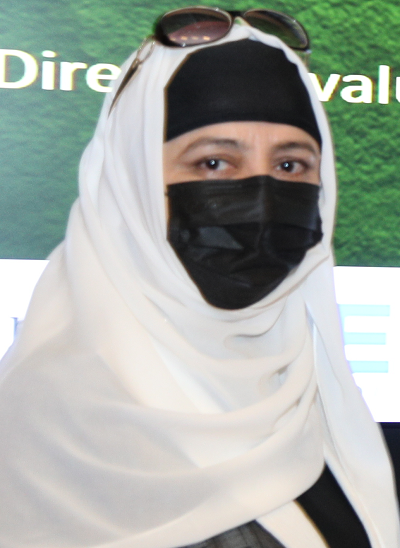 Dr. Tanzila Saba earned her PhD in document information security and management from the Faculty of Computing, Universiti Teknologi Malaysia (UTM), Malaysia in 2012. She won the Best Student Chancellor Award in the Faculty of Computing UTM in 2012. Currently, she is serving as an Associate Chair of the Information Systems Department in the College of Computer and Information Sciences at Prince Sultan University, Riyadh, KSA. In recent years, her primary research focus is medical imaging, pattern recognition, data mining, MRI analysis, and Soft-computing. She has above 200 hundred publications that have around 9400 citations with an h-index of 60. Her most publications are in biomedical research published in ISI/SCIE indexed. Due to her excellent research achievements, she was included in Marquis Who’s Who (S & T) 2012.” Currently, she is the editor and reviewer of high reputed journals and on the panel of TPC of international indexed conferences. She is skilled with ABET & NCAAA quality assurance on the accreditation side. She is a senior member of IEEE. Prof.Tanzila is the leader of the Artificial Intelligence & Data Analytics Research Lab at Prince Sultan University and an active professional member of ACM, AIS and IAENG organizations. She is the PSU WiDS (Women in Data Science) ambassador at Stanford University. She received the Best Researcher award for four consecutive years at Prince Sultan University and has been nominated as a Research Professor since September 2019. She has been invited as a keynote speaker at numerous international forums and conferences. She has been positioned among the world's top 2% of scientists for the consecutive two years (2020 & 2021), by a research study conducted by Stanford University and Elsevier. She is the only female researcher in KSA, who has been listed in Guide2research since 2019-2022.
Dr. Tanzila Saba earned her PhD in document information security and management from the Faculty of Computing, Universiti Teknologi Malaysia (UTM), Malaysia in 2012. She won the Best Student Chancellor Award in the Faculty of Computing UTM in 2012. Currently, she is serving as an Associate Chair of the Information Systems Department in the College of Computer and Information Sciences at Prince Sultan University, Riyadh, KSA. In recent years, her primary research focus is medical imaging, pattern recognition, data mining, MRI analysis, and Soft-computing. She has above 200 hundred publications that have around 9400 citations with an h-index of 60. Her most publications are in biomedical research published in ISI/SCIE indexed. Due to her excellent research achievements, she was included in Marquis Who’s Who (S & T) 2012.” Currently, she is the editor and reviewer of high reputed journals and on the panel of TPC of international indexed conferences. She is skilled with ABET & NCAAA quality assurance on the accreditation side. She is a senior member of IEEE. Prof.Tanzila is the leader of the Artificial Intelligence & Data Analytics Research Lab at Prince Sultan University and an active professional member of ACM, AIS and IAENG organizations. She is the PSU WiDS (Women in Data Science) ambassador at Stanford University. She received the Best Researcher award for four consecutive years at Prince Sultan University and has been nominated as a Research Professor since September 2019. She has been invited as a keynote speaker at numerous international forums and conferences. She has been positioned among the world's top 2% of scientists for the consecutive two years (2020 & 2021), by a research study conducted by Stanford University and Elsevier. She is the only female researcher in KSA, who has been listed in Guide2research since 2019-2022.
Title: Utilizing Deep Learning to Secure the IoT System of Smart Cities Against Cyber Threats
Abstract: Connecting physical items or things with sensors, software, electronics, and Internet access for data transfer through the Internet of Things (IoT) devices is the concept of a smart city. IoT intelligently enhances productivity and efficacy using remote management, but security and privacy risks increase. Cyber threats are advancing daily, causing insufficient security and confidentiality measures. As the hackers use the Internet, several IoT vulnerabilities are introduced, demanding new security measures in the IoT devices of the smart city. The threads concerned with IoT need to be reduced for efficient Intrusion Detection Systems (IDSs). As a result, machine learning algorithms generate correct outputs from a large and complicated dataset. The output of machine learning could be used to detect anomalies in IoT-network systems. I will discuss several machine learning classifiers and deep learning models used for intrusion detection. A thorough explanation will be given about our current research work, where we use the ML classifiers and a DL model by using seven datasets of the TON_IoT telemetry dataset. The proposed IDS achieved an accuracy of 99.7% using Thermostat, GPS Tracker, Garage Door, and Modbus datasets via voting classifier.
-----------------------------------------------------------------------------------------------------------------------------------------------------------------------------------------
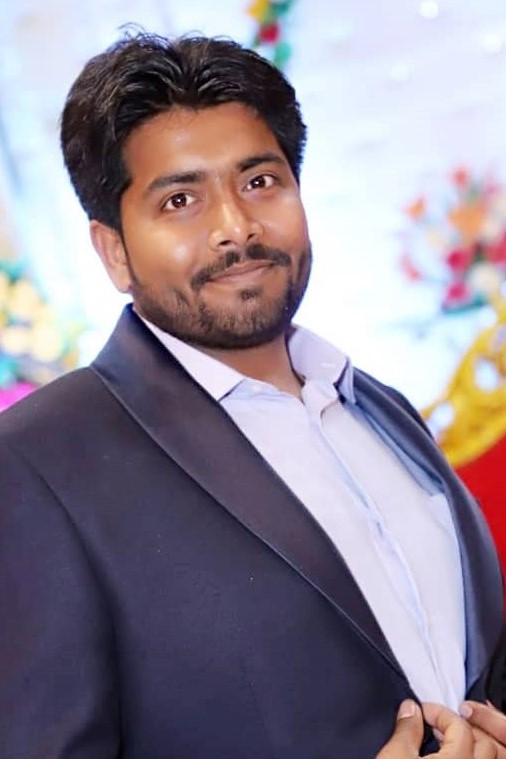 Dr. Bharat Bhushan is a Professor of Department of Computer Science and Engineering (CSE) at School of Engineering and Technology, Sharda University, Greater Noida, India. He is an alumnus of Birla Institute of Technology, Mesra, Ranchi, India. He received his Undergraduate Degree (B-Tech in Computer Science and Engineering) with Distinction in 2012, received his Postgraduate Degree (M-Tech in Information Security) with Distinction in 2015 and Doctorate Degree (PhD Computer Science and Engineering) in 2021 from Birla Institute of Technology, Mesra, India. He earned numerous international certifications such as CCNA, MCTS, MCITP, RHCE and CCNP. In the last three years, he has Published more than 80 research papers in various renowned International conferences and SCI indexed journals including Wireless Networks (Springer), Wireless Personal Communications (Springer), Sustainable Cities and Society (Elsevier) and Emerging Transactions on Telecommunications (Wiley). He has contributed with more than 25 book chapters in various books and has edited 11 books from the most famed publishers like Elsevier, IGI Global, and CRC Press. He has served as a Reviewer/Editorial Board Member for several reputed international journals. He is also a member of numerous renowned bodies including IEEE, IAENG, CSTA, SCIEI, IAE and UACEE.
Dr. Bharat Bhushan is a Professor of Department of Computer Science and Engineering (CSE) at School of Engineering and Technology, Sharda University, Greater Noida, India. He is an alumnus of Birla Institute of Technology, Mesra, Ranchi, India. He received his Undergraduate Degree (B-Tech in Computer Science and Engineering) with Distinction in 2012, received his Postgraduate Degree (M-Tech in Information Security) with Distinction in 2015 and Doctorate Degree (PhD Computer Science and Engineering) in 2021 from Birla Institute of Technology, Mesra, India. He earned numerous international certifications such as CCNA, MCTS, MCITP, RHCE and CCNP. In the last three years, he has Published more than 80 research papers in various renowned International conferences and SCI indexed journals including Wireless Networks (Springer), Wireless Personal Communications (Springer), Sustainable Cities and Society (Elsevier) and Emerging Transactions on Telecommunications (Wiley). He has contributed with more than 25 book chapters in various books and has edited 11 books from the most famed publishers like Elsevier, IGI Global, and CRC Press. He has served as a Reviewer/Editorial Board Member for several reputed international journals. He is also a member of numerous renowned bodies including IEEE, IAENG, CSTA, SCIEI, IAE and UACEE.
Title: Blockchain Technology for Data Privacy Management
Abstract: Blockchain is a distributed, decentralized public ledger that has gained massive momentum recently. Currently, security services such as privacy, confidentiality, resource provenance, access control, authentication and integrity assurance are managed by centralized controllers. However, this centralization faces numerous security and privacy challenges. Blockchain solve such challenges as it helps to create an attack resistant, digital data storage as well as sharing platform by employing linked block structures for data verification and trusted consensus mechanism for data synchronization. The goals of this talk are to provide insights into the blockchain security threats, to highlight the privacy necessities for current applications, to outline their challenges and give an insight on how these challenges can be resolved by the blockchain technology.
------------------------------------------------------------------------------------------------------------------------------------------------------------------------------------------
 Dr. Gyu Myoung Lee is with the Liverpool John Moores University (LJMU), UK, as a Professor from 2014 and with KAIST Institute for IT convergence, Korea, as an Adjunct Professor from 2012. Prior to joining the LJMU, he has worked with the Institut Mines-Telecom, Telecom SudParis, France, from 2008. Until 2012, he had been invited to work with the Electronics and Telecommunications Research Institute (ETRI), Korea. He also worked as a research professor in KAIST, Korea and as a guest researcher in National Institute of Standards and Technology (NIST), USA, in 2007. His research interests include Internet of things, digital twin, computational trust, trust in data and AI, knowledge centric networking and services, multimedia services, and energy saving technologies. He has been actively working for standardization in ITU-T, IETF and oneM2M, etc. He was the chair of ITU-T Focus Group on data processing and management (FG-DPM) to support IoT and smart cities & communities and currently serves as a WP chair in SG13, a Rapporteur of Q16/13 and Q4/20 as well as a vice-chair of FG-AN and FG-AI4A in ITU-T. He is a Senior Member of IEEE. He received his BS degree from Hong Ik University, Seoul, Korea, in 1999 and his MS and PhD degrees from the Korea Advanced Institute of Science and Technology (KAIST), Daejeon, Korea, in 2000 and 2007.
Dr. Gyu Myoung Lee is with the Liverpool John Moores University (LJMU), UK, as a Professor from 2014 and with KAIST Institute for IT convergence, Korea, as an Adjunct Professor from 2012. Prior to joining the LJMU, he has worked with the Institut Mines-Telecom, Telecom SudParis, France, from 2008. Until 2012, he had been invited to work with the Electronics and Telecommunications Research Institute (ETRI), Korea. He also worked as a research professor in KAIST, Korea and as a guest researcher in National Institute of Standards and Technology (NIST), USA, in 2007. His research interests include Internet of things, digital twin, computational trust, trust in data and AI, knowledge centric networking and services, multimedia services, and energy saving technologies. He has been actively working for standardization in ITU-T, IETF and oneM2M, etc. He was the chair of ITU-T Focus Group on data processing and management (FG-DPM) to support IoT and smart cities & communities and currently serves as a WP chair in SG13, a Rapporteur of Q16/13 and Q4/20 as well as a vice-chair of FG-AN and FG-AI4A in ITU-T. He is a Senior Member of IEEE. He received his BS degree from Hong Ik University, Seoul, Korea, in 1999 and his MS and PhD degrees from the Korea Advanced Institute of Science and Technology (KAIST), Daejeon, Korea, in 2000 and 2007.
Title: Decentralized Platform with AI Inspired Cloud-Edge Computing
Abstract: Artificial Intelligence (AI) and Internet of Things (IoT) are very important technologies for the future and there are a lot of research activities to combine AI and IoT, called AIoT (Artificial Intelligence of Things). Furthermore, data is becoming essential to support AI based solutions with human interactions. In this regard, this talk introduces key concepts, features and characteristics of AI inspired cloud-edge computing for realizing human centric AIoT in data driven networking point of view. From AIoT research, many researchers have identified the importance of decentralized platforms. Therefore, this talk introduces data ecosystem and its features. Then, it presents key challenges for building up decentralized Platforms with AI inspired cloud-edge Computing and discuss next steps for future research.
----------------------------------------------------------------------------------------------------------------------------------------------------------------------------------------
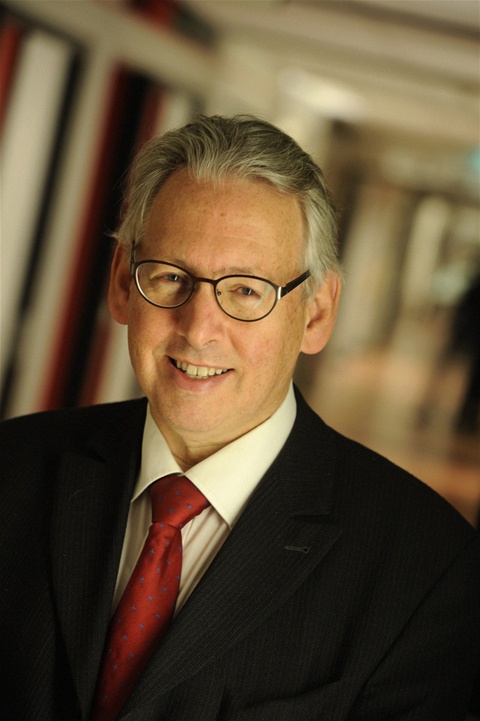 Dr. Piet Kommers is UNESCO Professor of Learning Technologies, The Netherlands an early pioneer in media for cognitive- and social support. His doctoral research explored methods for hypertext and concept mapping in learning. Since 1982 he developed educational technology for teacher training. His main thesis is that technology is catalytic for human ambition and awareness. His main function is associate professor in the University in Twente, The Netherlands and adjunct/visiting professor in various countries. Pioneer in media education and leader of NATO Advanced Research Workshops on Cognitive Learning Tools. UNESCO professor and scientific leader with extensive experience in educational technology and social media. " .... Media proved to be instrumental to emancipation, equity and societal evolution: the smart phone, virtual reality, interactive video, hypermedia, expert systems, modelling and simulations." He is Ph.D. holder in Educational- and Media Design, with a Master in Pedagogy and a Bachelor degree in Teacher Education. Received the prestigious academic award for innovative ‘Experimental Design’ and was offered a research position in collaborative group problem solving wherein he designed the ‘Concise Urban Planning Task’. Long-term experience at management level coupled with a strategic appreciation and vision. Methodical in evaluation and systematic implementation. A strong work ethic with a high level of personal integrity (leading by example); able to create trust in teams.(http://www.pietkommers.nl/)
Dr. Piet Kommers is UNESCO Professor of Learning Technologies, The Netherlands an early pioneer in media for cognitive- and social support. His doctoral research explored methods for hypertext and concept mapping in learning. Since 1982 he developed educational technology for teacher training. His main thesis is that technology is catalytic for human ambition and awareness. His main function is associate professor in the University in Twente, The Netherlands and adjunct/visiting professor in various countries. Pioneer in media education and leader of NATO Advanced Research Workshops on Cognitive Learning Tools. UNESCO professor and scientific leader with extensive experience in educational technology and social media. " .... Media proved to be instrumental to emancipation, equity and societal evolution: the smart phone, virtual reality, interactive video, hypermedia, expert systems, modelling and simulations." He is Ph.D. holder in Educational- and Media Design, with a Master in Pedagogy and a Bachelor degree in Teacher Education. Received the prestigious academic award for innovative ‘Experimental Design’ and was offered a research position in collaborative group problem solving wherein he designed the ‘Concise Urban Planning Task’. Long-term experience at management level coupled with a strategic appreciation and vision. Methodical in evaluation and systematic implementation. A strong work ethic with a high level of personal integrity (leading by example); able to create trust in teams.(http://www.pietkommers.nl/)
Title: Conceptual Representations for Deep Learning in the 21st Century
Abstract: “Artificial Intelligence in Education”
The Covid-19 era unexpectedly made all sectors dependent from remote communication, virtual- and vicarious learning. This lecture is based upon the new book: “Sources for a Better Education: Lessons from Research and Best Practices”.
It signals parallels in society, technology, and demonstrates the risk for biased information; not just lacking knowledge or naïve misconceptions. Starting from abundant information access we now see tempting options for learners to restructure and even reconceive existing information. From the perspective of cognitive growth, the last four decades let learners ‘re-construct meaning’ to stimulate highly individualized understanding: Simulations, modelling, concept mapping, and lately the cultivation of storytelling; they have been promoted as an extra to just absorbing new knowledge. So far, education still underestimated the flip side of constructivist learning practices: Critical thinking seemed to be a good candidate for a more active learning attitude; It may create more authentic students who build upon existential drive: “What do I need to ‘make a difference’ in life. Problem- and challenge-based learning are the keywords. The book appetizer “Sources for a better Education” exposes the landscape of learning theories and how teachers can benefit from the larger spectrum of A.I. tools: big data, data mining, deep learning, machine learning, learning analytics and multi-variate inductive reasoning? This lecture will guide you to the main questions: What didactic measures allow teachers to make students resilient to fake news? What scenarios for thematic- rather than mono-disciplinary courses need to be developed? For instance, in the attempts to implement and disseminate STEAM (Science, Technology, Engineering, Arts and Mathematics)? What social media mechanisms lead to web-based communities? And: What are valid ways to assess the quality of learning outcomes?
----------------------------------------------------------------------------------------------------------------------------------------------------------------------------------------
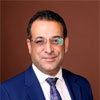 Dr. Hamed Taherdoost is faculty member of University Canada West. He holds PhD of Computer Science and Master of Information Security. He has over 20 years of experience in both industry and academic sectors. He has worked at international companies from Cyprus, the UK, Malta, Iran, Malaysia, and Canada and has been highly involved in development of several projects in different industries including oil and gas, healthcare, transportation, and information technology, holding positions as varied as Project Manager, R&D Manager, Tech Lead, and CTO. He has spent the last nine years helping start-ups to grow by implementing new projects and business lines. Apart from his experience in industry, he also has some achievements in academia. He has been a lecturer in three different parts of the world, Southeast Asia, the Middle East, and North America. Besides, he has organized and chaired numerous workshops, conferences, and conference sessions respectively, and has delivered speeches as chief guest and keynote speaker. Moreover, he is the editorial, reviewer, and advisory board member of some authentic peer-reviewed journals publishing with Taylor & Francis, Springer, Emerald, Elsevier, MDPI, EAI, & IGI Publishing, and Inderscience. Hamed has been an active multidisciplinary researcher and R&D specialist involved in several academic and industrial research projects. He has been working with researchers from various disciplines and has been actively engaged in different research studies. His research achievements also include winning several best paper awards and outstanding reviewer awards. His views on science and technology have been published in top-ranked scientific publishers such as Elsevier, Springer, Emerald, IEEE, IGI Global, Inderscience, Taylor and Francis and Dr. Hamed has published over 160 scientific articles in authentic peer-reviewed international journals and conference proceedings (h-index = 31; i10-index = 52; May 2022), ten book chapters as well as eight books in the field of technology and research methodology. He was the finalist for the Innovation in Teaching of Research Methodology Excellence Awards at ECRM, UK in 2022 and was nominated as the finalists in Southeast Asian Startup Awards in 2020 by Global Startup Awards and has been listed on the Stanford-Elsevier list of World’s top 2% of scientist by August 2021. He is a Certified Cyber Security Professional and Certified Graduate Technologist. He is senior member of IEEE, IAEEEE, IASED, and IEDRC and WGM of IFIP TC11 - Assurance and Information Security Management, and member of CSIAC), ACT-IAC, and AASHE. Currently, he is involved in several multidisciplinary research projects, including studying innovation in information technology, blockchain and cybersecurity, and technology acceptance.
Dr. Hamed Taherdoost is faculty member of University Canada West. He holds PhD of Computer Science and Master of Information Security. He has over 20 years of experience in both industry and academic sectors. He has worked at international companies from Cyprus, the UK, Malta, Iran, Malaysia, and Canada and has been highly involved in development of several projects in different industries including oil and gas, healthcare, transportation, and information technology, holding positions as varied as Project Manager, R&D Manager, Tech Lead, and CTO. He has spent the last nine years helping start-ups to grow by implementing new projects and business lines. Apart from his experience in industry, he also has some achievements in academia. He has been a lecturer in three different parts of the world, Southeast Asia, the Middle East, and North America. Besides, he has organized and chaired numerous workshops, conferences, and conference sessions respectively, and has delivered speeches as chief guest and keynote speaker. Moreover, he is the editorial, reviewer, and advisory board member of some authentic peer-reviewed journals publishing with Taylor & Francis, Springer, Emerald, Elsevier, MDPI, EAI, & IGI Publishing, and Inderscience. Hamed has been an active multidisciplinary researcher and R&D specialist involved in several academic and industrial research projects. He has been working with researchers from various disciplines and has been actively engaged in different research studies. His research achievements also include winning several best paper awards and outstanding reviewer awards. His views on science and technology have been published in top-ranked scientific publishers such as Elsevier, Springer, Emerald, IEEE, IGI Global, Inderscience, Taylor and Francis and Dr. Hamed has published over 160 scientific articles in authentic peer-reviewed international journals and conference proceedings (h-index = 31; i10-index = 52; May 2022), ten book chapters as well as eight books in the field of technology and research methodology. He was the finalist for the Innovation in Teaching of Research Methodology Excellence Awards at ECRM, UK in 2022 and was nominated as the finalists in Southeast Asian Startup Awards in 2020 by Global Startup Awards and has been listed on the Stanford-Elsevier list of World’s top 2% of scientist by August 2021. He is a Certified Cyber Security Professional and Certified Graduate Technologist. He is senior member of IEEE, IAEEEE, IASED, and IEDRC and WGM of IFIP TC11 - Assurance and Information Security Management, and member of CSIAC), ACT-IAC, and AASHE. Currently, he is involved in several multidisciplinary research projects, including studying innovation in information technology, blockchain and cybersecurity, and technology acceptance.
Title: Blockchain Technology in IoT security and Privacy
Abstract: To address IoT security and privacy concerns and improve other aspects of IoT platforms, Blockchain technology can be considered as a possible solution. A Blockchain is a decentralized and distributed ledger containing blocks of transactions that are connected to guarantee the security of transactions. Since the organization of Blockchain is decentralized and distributed, its employment in the IoT platforms is getting increasingly attractive. Blockchain enables partners in an IoT platform to access and share data without reliance on the central control and management. Moreover, Blockchain technology can be used to store IoT data in a much more robust manner through adding a new security level that protects data against cyber-attacks. Thus, Blockchain can be used as a service for IoT to address security issues by making it impossible to overwrite data records through encryption. Solutions to enhance the security and privacy of IoT through the employment of Blockchain technology will be discussed in this speech.
-----------------------------------------------------------------------------------------------------------------------------------------------------------------------------------------
 Dr. Elsadig Musa Ahmed is a Professor of Economics and Technology Management at Multimedia University (MMU), MMU Senate member, Students’ disciplinary committee and Board of Postgraduates (2015-2021). Coordinator for Post Graduate programs of the Faculty of Business (March 2006-April 2014), Chairperson of Center for Globalization and Sustainability Research (CGSR) (March2009-April2014), Multimedia University (MMU), Melaka Campus, Malaysia, member of Research and Development, research grants panel and the Institute of Postgraduate Studies (IPS) Coordination Committee (ICC) MMU. He is currently teaching Advanced Research Methodology, Entrepreneurship and Commercialization, and Economics for Managers at the postgraduate level and economic subjects at the undergraduate level. His research interests include development economics, productivity analysis, Digital Economy (knowledge-based economy), productivity and environment (green productivity), Bioeconomy, Islamic finance and microfinance, Poverty, economic growth, (environment, tourism) and Entrepreneurship. He is the book's author (Green Productivity: Applications in Malaysia’s Manufacturing) in 2012. He has published more than 100 publications in international refereed journals and presented several papers at conferences. He supervised and produced 14 PhD, 4 DBA, 3 Masters, and 8 MBA Theses. Currently, supervises several students at Doctor of Philosophy (PhD.), Master of Philosophy (MPhil) and MBA project, undergraduate final levels. In terms of research grants he received 5 external projects in ICT and Economic Growth, Foreign Direct Investment Spillover Effects from the Malaysian government, and Mobile Banking for Microfinance from the Islamic Development Bank (IsDB), Jeddah KSA. He examined several PhD theses from Malaysian Universities, Indian Universities, and other countries. I have been appointed as auditor, assessor, and editorial board member for several programmes, journals, conferences, and professorial positions. He has been appointed as a panel review of the Malaysian Ministry of Education research grants and reviewer for the IsDB proposals for postdoctoral and PhD scholarships. In terms and training, he conducted several workshops and public lectures not limited to writing research grants proposals, postgraduate thesis writing, Writing scientific papers for publishing in Scopus and WoS indexed journals, leadership, and performance analysis appraisal in Malaysia, KSA, and Sudan. He is the leader of the Economic Planning Forum and Research skills Workshops of Sudanese researchers’ initiatives. A member of The Council for Sudanese Experts and Scientists Abroad, World Economics Association, World Assembly of Youth (WAY), Arab Science and Technology Foundation (ASTF), World Academy of Sciences, Engineering and Technology (WASET), Scientific and Technical Committee on Humanities and Social Sciences, World Association for Sustainable Development (WASD), Sudan Knowledge and several associations. He is an editorial board member and reviewer for various international journals and conferences such as (Economic Modelling, Journal of Productivity Analysis, Applied Economics, Journal of Information and Knowledge Management, Telecommunications Policy). He was awarded the Outstanding Reviewer in the 2021 Emerald Literati Awards, Emerald Publishing, UK, best paper award at XXth Conference of CEDIMS, Laval University, Quebec, Canada in November 2010, and the academic staff and excellent research awards of Multimedia University several times.
Dr. Elsadig Musa Ahmed is a Professor of Economics and Technology Management at Multimedia University (MMU), MMU Senate member, Students’ disciplinary committee and Board of Postgraduates (2015-2021). Coordinator for Post Graduate programs of the Faculty of Business (March 2006-April 2014), Chairperson of Center for Globalization and Sustainability Research (CGSR) (March2009-April2014), Multimedia University (MMU), Melaka Campus, Malaysia, member of Research and Development, research grants panel and the Institute of Postgraduate Studies (IPS) Coordination Committee (ICC) MMU. He is currently teaching Advanced Research Methodology, Entrepreneurship and Commercialization, and Economics for Managers at the postgraduate level and economic subjects at the undergraduate level. His research interests include development economics, productivity analysis, Digital Economy (knowledge-based economy), productivity and environment (green productivity), Bioeconomy, Islamic finance and microfinance, Poverty, economic growth, (environment, tourism) and Entrepreneurship. He is the book's author (Green Productivity: Applications in Malaysia’s Manufacturing) in 2012. He has published more than 100 publications in international refereed journals and presented several papers at conferences. He supervised and produced 14 PhD, 4 DBA, 3 Masters, and 8 MBA Theses. Currently, supervises several students at Doctor of Philosophy (PhD.), Master of Philosophy (MPhil) and MBA project, undergraduate final levels. In terms of research grants he received 5 external projects in ICT and Economic Growth, Foreign Direct Investment Spillover Effects from the Malaysian government, and Mobile Banking for Microfinance from the Islamic Development Bank (IsDB), Jeddah KSA. He examined several PhD theses from Malaysian Universities, Indian Universities, and other countries. I have been appointed as auditor, assessor, and editorial board member for several programmes, journals, conferences, and professorial positions. He has been appointed as a panel review of the Malaysian Ministry of Education research grants and reviewer for the IsDB proposals for postdoctoral and PhD scholarships. In terms and training, he conducted several workshops and public lectures not limited to writing research grants proposals, postgraduate thesis writing, Writing scientific papers for publishing in Scopus and WoS indexed journals, leadership, and performance analysis appraisal in Malaysia, KSA, and Sudan. He is the leader of the Economic Planning Forum and Research skills Workshops of Sudanese researchers’ initiatives. A member of The Council for Sudanese Experts and Scientists Abroad, World Economics Association, World Assembly of Youth (WAY), Arab Science and Technology Foundation (ASTF), World Academy of Sciences, Engineering and Technology (WASET), Scientific and Technical Committee on Humanities and Social Sciences, World Association for Sustainable Development (WASD), Sudan Knowledge and several associations. He is an editorial board member and reviewer for various international journals and conferences such as (Economic Modelling, Journal of Productivity Analysis, Applied Economics, Journal of Information and Knowledge Management, Telecommunications Policy). He was awarded the Outstanding Reviewer in the 2021 Emerald Literati Awards, Emerald Publishing, UK, best paper award at XXth Conference of CEDIMS, Laval University, Quebec, Canada in November 2010, and the academic staff and excellent research awards of Multimedia University several times.
Title: Modelling Digital Economy Via Integrating Innovation And Climate Change
Abstract: The main objective of this research is to model and examine the digital economy's positive and negative externalities spillover effects on sustainable economic growth through employing a mixed-method approach, consisting of quantitative and qualitative analysis at macro and micro levels. The study fills the gaps in growth theories by developing three different frameworks and econometric models and internalizing pollutants’ emissions as private and unpriced inputs in the three models. Further, the green capital productivity model is the exclusive contributing model developed in this research; it has not been assumed and empirically examined in previous studies, apart from the studies undertaken by (Ahmed, 2009, 2017, 2018, 2019, 2020, and 2021). The significant contribution of this study has modified the fundamental findings of Nobel Prize Laureates’ research findings (Nordhaus and Romer, 2018) to integrate innovation and climate change in the form of green productivity as well as existing studies in developing frameworks and models to measure the digital economy indicators such as digital technology positive externalities and negative externalities such as cybersecurity shortcomings and negative externalities generated by pollutants’ emissions. The role of these externalities on long-term sustainable economic growth has been ignored by several past studies undertaken in these areas. These three modified frameworks and models in a significant method articulate the technological progress issues and sustainable economic growth as one of the most important sustainable development and long-run economic growth dimensions. The study recommended foundations for the digital economy to achieve the Sustainable Development Goals (SDGs) 2030 agenda
-------------------------------------------------------------------------------------------------------------------------------------------------------------------------------------------
 Professor Valliappan Raju specializes in research methodology and spearheads Ph.D. program at Limkokwing University. And he exercises his Postdoc fellowship on FinTech research at IIUM, Malaysia. In April 2022 he obtained his Full-Professorship. He has published more than 250+ research publications at Scopus (Q1), SSCI, EI indexed journals. He is appointed as External Examiner to assess Ph.D. Viva defenses at Universities in Malaysia, UK and India. Under his supervision, 53 candidates have graduated with Ph.D. degrees. He serves as Dissertation Supervisor at Arden University (Germany) and a proud member of Oxford Philosophical Society (UK), PMI (USA) and CPA (Australia). He reviews World Bank Conference Journals (USA) and is appointed as Guest Editor for Q1 journals. Vally’s book ‘Fundamentals of Thesis’ was well received among the research community. 14 researchers are presently under his supervision for Ph.D. Management program. He is constantly invited as Conference chair / keynote speaker at research forums held Worldwide. He focuses on Delphi Technique research in Anthropology and FinTech. Recognizing his academic talent, he was given Resident Pass-Talent (RP-T) Visa by Immigration of Malaysia.
Professor Valliappan Raju specializes in research methodology and spearheads Ph.D. program at Limkokwing University. And he exercises his Postdoc fellowship on FinTech research at IIUM, Malaysia. In April 2022 he obtained his Full-Professorship. He has published more than 250+ research publications at Scopus (Q1), SSCI, EI indexed journals. He is appointed as External Examiner to assess Ph.D. Viva defenses at Universities in Malaysia, UK and India. Under his supervision, 53 candidates have graduated with Ph.D. degrees. He serves as Dissertation Supervisor at Arden University (Germany) and a proud member of Oxford Philosophical Society (UK), PMI (USA) and CPA (Australia). He reviews World Bank Conference Journals (USA) and is appointed as Guest Editor for Q1 journals. Vally’s book ‘Fundamentals of Thesis’ was well received among the research community. 14 researchers are presently under his supervision for Ph.D. Management program. He is constantly invited as Conference chair / keynote speaker at research forums held Worldwide. He focuses on Delphi Technique research in Anthropology and FinTech. Recognizing his academic talent, he was given Resident Pass-Talent (RP-T) Visa by Immigration of Malaysia.
Title: Calculation Techniques for Credit Limit Fixation through Spending Power: Using Artificial Intelligence Measurement
Abstract: This research shall constitute a discussion and proposal for arriving credit limits for individuals based on their spending capabilities. Numerous methods have arrived so far to fix the credit limit, however, all have one vital gap as they are manually calculated. By implementing Artificial Intelligence (AI) programming for obtaining the data of spending-power and engaging with automated evaluation of spending nature there is a possibility to arrive at a credit limit for each individual. This could be highly beneficial to banks, particularly to the loan disbursement division. NPAs (Non-performing Assets) could be avoided through this implementation. A quantitative approach with 58 sample data that has been collected, shall be analyzed to bring out a valid recommendation.
****************************Keynote Industrial Speakers********************************
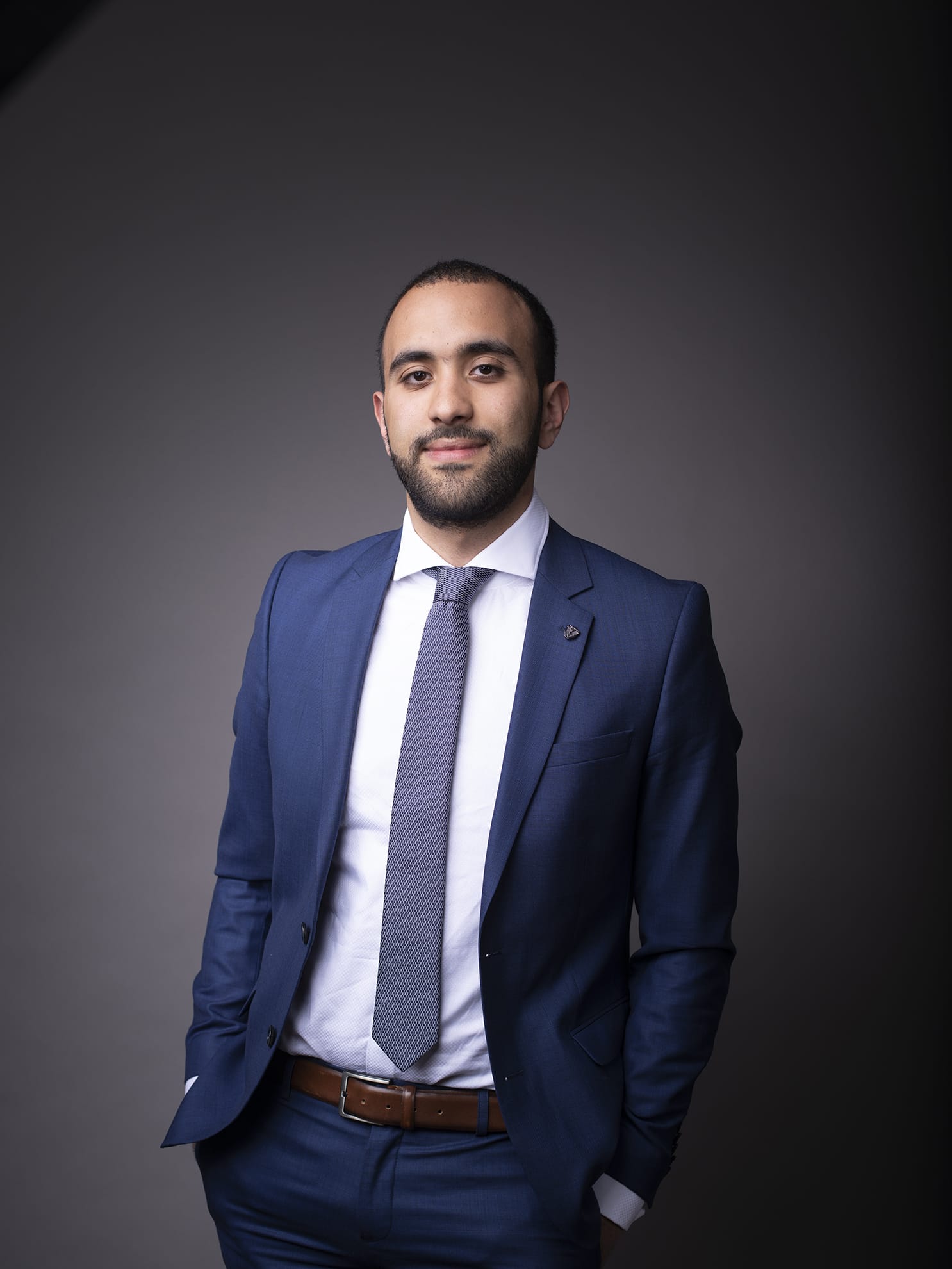 Dr. Hamza Tajmouati, Group Leader, Artificial Intelligence Research at Iktos, France. Master’s in Applied Mathematics and Computer Science. Key contributor to the development of Iktos generative modeling technology. Lead developer of Iktos retrosynthesis technology.
Dr. Hamza Tajmouati, Group Leader, Artificial Intelligence Research at Iktos, France. Master’s in Applied Mathematics and Computer Science. Key contributor to the development of Iktos generative modeling technology. Lead developer of Iktos retrosynthesis technology.
Title: Artificial Intelligence Applied to Drug Discovery
-------------------------------------------------------------------------------------------------------------------------------------------------------------------------------------------------------------------------------------------------------
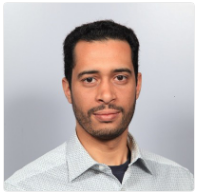 Mr. Mohamed Drissi is a Manager of Analytics Development at FNB Corp (Bank). He started his carrier with in Business Intelligence and EPM systems especially Oracle Hyperion Products in 2012. He worked as consultant for 3 years managing upgrades and administration work related to Hyperion. Later, he worked as business analyst for many years and then moved to data analysis using SAS products. Mohamed took his Bachelor degree in FST Errachidia in Computer Engineering in 2004 and finished his MBA in South University (USA) in 2016.
Mr. Mohamed Drissi is a Manager of Analytics Development at FNB Corp (Bank). He started his carrier with in Business Intelligence and EPM systems especially Oracle Hyperion Products in 2012. He worked as consultant for 3 years managing upgrades and administration work related to Hyperion. Later, he worked as business analyst for many years and then moved to data analysis using SAS products. Mohamed took his Bachelor degree in FST Errachidia in Computer Engineering in 2004 and finished his MBA in South University (USA) in 2016.
Title: Machine Learning in Finance Services Explore different use cases of machine learning in Finance Services




 Professor Amir Hussain is Professor and founding Director of the Centre of AI and Robotics at Edinburgh Napier University, UK. His research interests are cross-disciplinary and industry-led, aimed at developing cognitive data science and trustworthy AI technologies to engineer smart healthcare and industrial systems of tomorrow. He has (co)authored around 600 research publications, including over 250 journal papers and 20 Books/monographs. He has supervised over 40 PhD students and led major national and international projects. He is currently managing research grants totalling over £5 Million, including as Lead Principal Investigator for the COG-MHEAR Programme Grant (funded under the UK EPSRC Transformative Healthcare Technologies 2050 Call) that aims to develop truly personalised, multi-modal hearing assistive technology. He is also leading a related UK EPSRC project that is developing privacy-preserving and emotion-sensitive conversational agents for natural language dialogue in low-resource domains. He is founding Chief Editor of Springer’s Cognitive Computation journal (Impact factor: 5.4) and invited editorial board member for Elsevier’s Information Fusion and several IEEE Transactions including on: Neural Networks and Learning Systems; Artificial Intelligence; Systems, Man and Cybernetics (Systems); and Emerging Topics in Computational Intelligence. He has served as General Chair of IEEE WCCI 2020 (the world’s largest IEEE CIS technical event on computational intelligence, comprising the IJCNN, FUZZ-IEEE and IEEE CEC) and is currently General Chair of the 2023 IEEE Smart World Congress. He is an Executive Committee member of the UKCRC (the national expert panel of the IET and the BCS for UK computing research) and Chapter Chair of the IEEE UK and Ireland Industry Applications Society.
Professor Amir Hussain is Professor and founding Director of the Centre of AI and Robotics at Edinburgh Napier University, UK. His research interests are cross-disciplinary and industry-led, aimed at developing cognitive data science and trustworthy AI technologies to engineer smart healthcare and industrial systems of tomorrow. He has (co)authored around 600 research publications, including over 250 journal papers and 20 Books/monographs. He has supervised over 40 PhD students and led major national and international projects. He is currently managing research grants totalling over £5 Million, including as Lead Principal Investigator for the COG-MHEAR Programme Grant (funded under the UK EPSRC Transformative Healthcare Technologies 2050 Call) that aims to develop truly personalised, multi-modal hearing assistive technology. He is also leading a related UK EPSRC project that is developing privacy-preserving and emotion-sensitive conversational agents for natural language dialogue in low-resource domains. He is founding Chief Editor of Springer’s Cognitive Computation journal (Impact factor: 5.4) and invited editorial board member for Elsevier’s Information Fusion and several IEEE Transactions including on: Neural Networks and Learning Systems; Artificial Intelligence; Systems, Man and Cybernetics (Systems); and Emerging Topics in Computational Intelligence. He has served as General Chair of IEEE WCCI 2020 (the world’s largest IEEE CIS technical event on computational intelligence, comprising the IJCNN, FUZZ-IEEE and IEEE CEC) and is currently General Chair of the 2023 IEEE Smart World Congress. He is an Executive Committee member of the UKCRC (the national expert panel of the IET and the BCS for UK computing research) and Chapter Chair of the IEEE UK and Ireland Industry Applications Society. Dr
Dr





 Mr. Mohamed Drissi is a Manager of Analytics Development at FNB Corp (Bank). He started his carrier with in Business Intelligence and EPM systems especially Oracle Hyperion Products in 2012. He worked as consultant for 3 years managing upgrades and administration work related to Hyperion. Later, he worked as business analyst for many years and then moved to data analysis using SAS products. Mohamed took his Bachelor degree in FST Errachidia in Computer Engineering in 2004 and finished his MBA in South University (USA) in 2016.
Mr. Mohamed Drissi is a Manager of Analytics Development at FNB Corp (Bank). He started his carrier with in Business Intelligence and EPM systems especially Oracle Hyperion Products in 2012. He worked as consultant for 3 years managing upgrades and administration work related to Hyperion. Later, he worked as business analyst for many years and then moved to data analysis using SAS products. Mohamed took his Bachelor degree in FST Errachidia in Computer Engineering in 2004 and finished his MBA in South University (USA) in 2016. 
